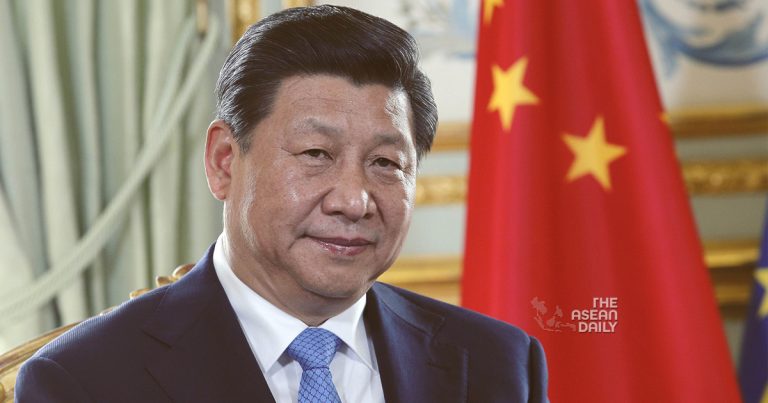5-9-2023 (BEIJING) President Xi Jinping’s unexpected decision to skip the G20 summit has highlighted China’s strained relations with major powers and a growing culture of secrecy within the ruling Communist Party, according to China analysts. Beijing’s foreign ministry confirmed on Monday (Sep 4) that Premier Li Qiang would represent China at the gathering of world leaders in New Delhi this weekend, effectively confirming Xi’s absence.
No official reason was given for Xi’s nonattendance, which is a departure from his previous track record of attending the summit since coming to power. The only exception was in 2021 when he participated via video link due to COVID-19 restrictions during the summit held in Rome.
This notable absence contrasts sharply with Xi’s presence at the BRICS summit of emerging economies in South Africa last month. During that event, Xi played a prominent role as the bloc agreed to admit six new members, which he hailed as a “historic” achievement. Analysts suggest that China’s emphasis on developing world ties and creating an alternative to the US-dominated liberal international order since World War II may explain this realignment. Steve Tsang, director of the SOAS China Institute at the University of London, noted that China is gathering support and consolidating its influence in the Global South, making the G20 less of a priority. Tsang clarified that he is not suggesting Xi is anti-G20, but rather that he does not view it as equally important as BRICS.
Xi’s absence from this year’s G20 summit also dampens hopes of renewed engagement with Western powers, following his grand appearance at the previous edition in Bali, which was carefully choreographed to project magnanimity.
Experts suggest that long-standing tensions with India, the host country, may have influenced Xi’s decision. Yun Sun, China program director at the Stimson Center, a Washington-based think tank, explained that China-India relations have been strained since 2020, with China accusing India of using the G20 platform to solidify its claims over disputed territory. The two countries have a longstanding border dispute, and violent clashes have occurred along the Himalayan boundary in recent years. China also objects to India’s membership in the Quad, a security partnership with Australia, Japan, and the United States, which Beijing perceives as an effort to contain its influence in Asia.
Shi Yinhong, a professor of international relations at Renmin University of China in Beijing, noted that India has recently exhibited stronger opposition to China’s claims in the South China Sea and imposed bans or strict restrictions on Chinese tech exports and direct investments. These issues have persisted for years and will likely continue, regardless of situational events, according to Yinhong.
There were expectations that Xi might use the G20 summit as an opportunity to meet with President Joe Biden, who expressed disappointment last week over the possibility of Xi’s absence. China and the United States have been at odds on various fronts, including trade, technology, and human rights.
However, the prospect of a November meeting at the Asia-Pacific Economic Cooperation (APEC) summit in San Francisco may have diminished the urgency for Xi to attend the G20, according to Sun.
When asked about Xi’s absence, a spokesperson for China’s foreign ministry deflected the question during a media briefing, stating that an announcement had already been made regarding Premier Li Qiang’s visit to India. The spokesperson did not provide any specific reasons for Xi’s nonattendance.
China’s Communist Party has a history of withholding information about its top leaders, and this pattern of secrecy has drawn attention in recent months. In July, former foreign minister Qin Gang was abruptly removed from his post and has not been seen in public since. Additionally, Xi did not deliver a scheduled speech at the BRICS summit, opting to have his commerce minister read it on his behalf.
Tsang from SOAS suggests that there is a reasonable chance that Xi, who turned 70 this year, may be facing health issues. He also noted that Xi is leading China further towards a totalitarian direction, which includes tighter control and increased secrecy.
One diplomat from a G20 nation speculated that Xi may want to avoid uncomfortable questions about China’s refusal to condemn Russia over its invasion of Ukraine, stating that the Chinese leader does not like being confronted with such inquiries.




